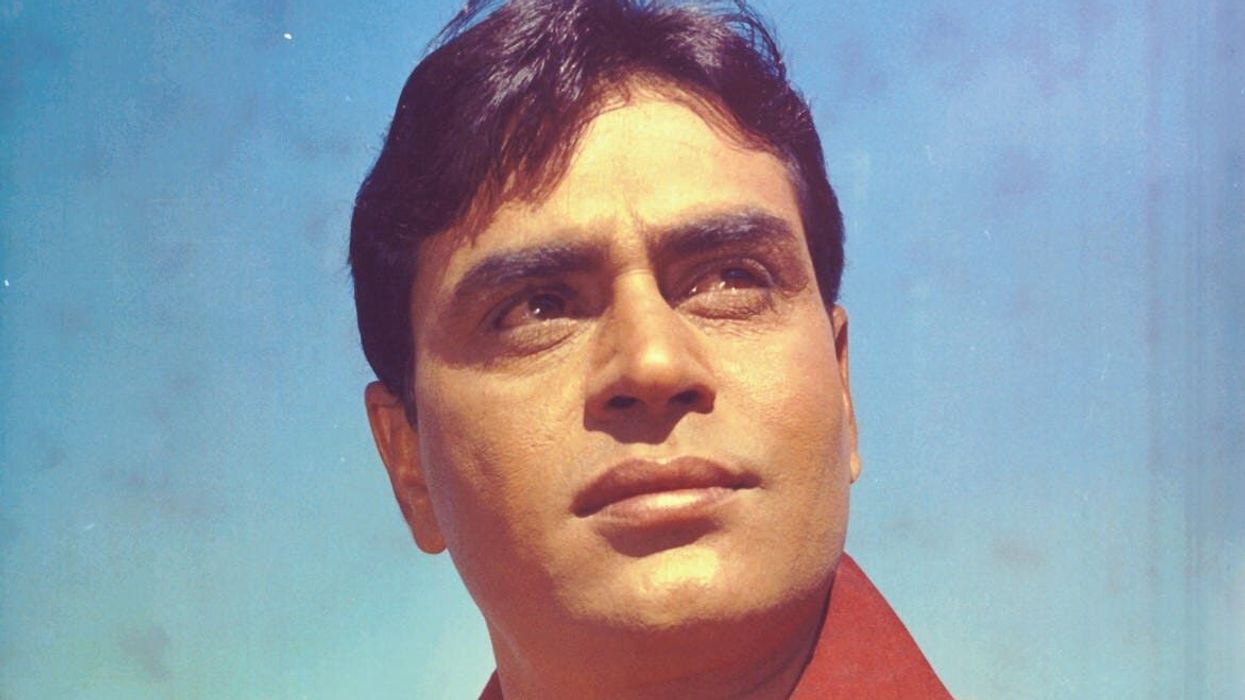RAJENDRA KUMAR starred in some of the greatest Bollywood films ever made.
The legendary actor was so successful that he was given the nickname Jubilee Kumar because his films earned silver and golden jubilee runs in cinemas. Born on July 20, 1929, the iconic star passed away on July 12, 1999 aged 71 after a life well lived.
Eastern Eye decided to mark the cinema great’s birth and death anniversary this month by listing 20 fascinating facts about his action-packed career.
1 Rajendra Kumar never wanted to be leading man. After small supporting roles in Patanga (1949) and Jogan (1950), he worked as an assistant director.
2 Producer Devendra Goel had noticed Kumar in Jogan and launched him as a leading man in Vachan (1955). The movie became the first of many silver jubilee hits for him.
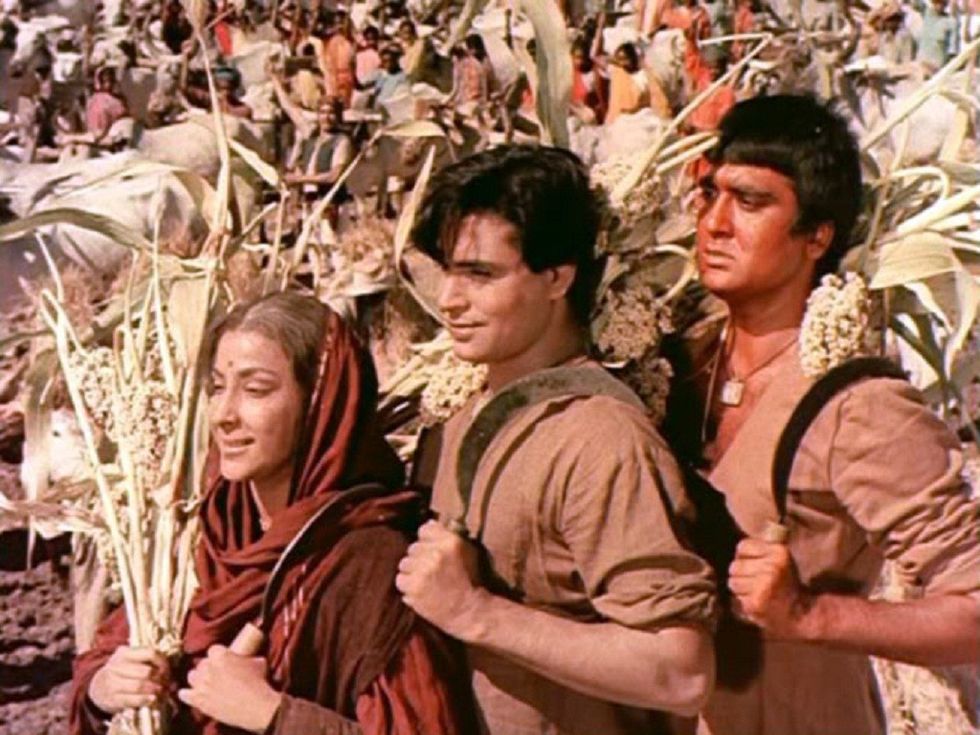
3 The actor played the good son in Mother India (1957), which became India’s first Oscar nominated movie.
4 Kumar’s first major success as a romantic hero was hit musical Goonj Uthi Shehnai (1959). Asha Parekh was supposed to be launched opposite him but was replaced by more established star Ameeta. Parekh would be launched in Dil Deke Dekho opposite Shammi Kapoor that year and became an overnight superstar.
5 Bollywood’s greatest director Yash Chopra made his directorial debut with Kumar’s hit film Dhool Ka Phool (1959).
6 Kumar made his Gujarati language debut with the film Mehndi Rang Lagyo (1960). He acted in his first Punjabi film Do Sher in 1974.
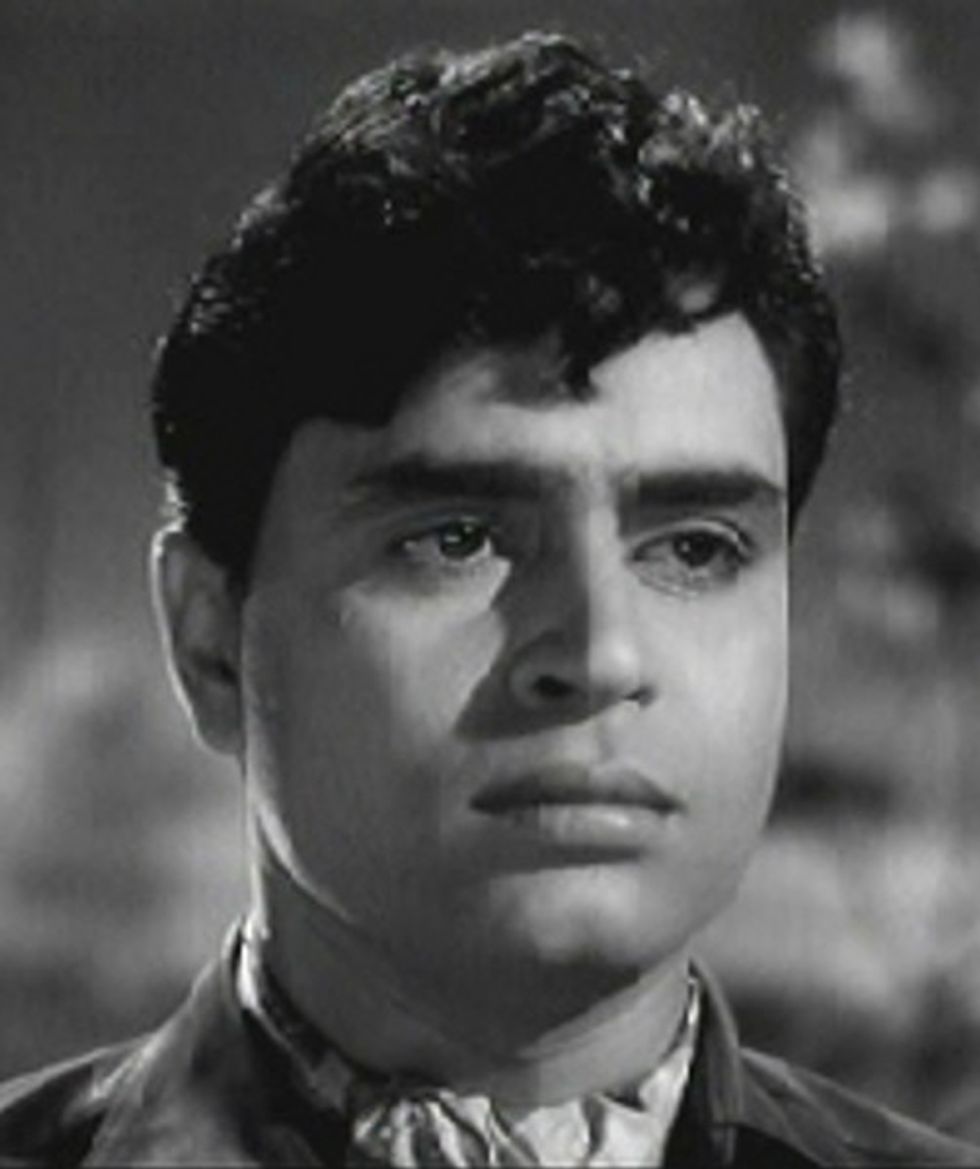
7 His hit movie Kanoon (1960) was the first Bollywood blockbusters to have no songs in it. The courtroom drama won multiple awards including a National Film Award for best feature film in Hindi.
8 He delivered five hit films in 1961. They included Gharana (1961), Aas Ka Panchhi (1961) and Sasural (1961), which were in the top six highest grossers of that year.
9 Kumar’s hit film Gharana (1961) was a remake of the 1960 Telugu film Shanthi Nivasam. His superhit film Dil Ek Mandir (1963) was a remake of Tamil romantic drama Nenjil Ore Aalayam (1962).
10 He headlined three of the top 10 highest Bollywood grossers of 1963, including the year’s most successful movie Mere Mehboob.
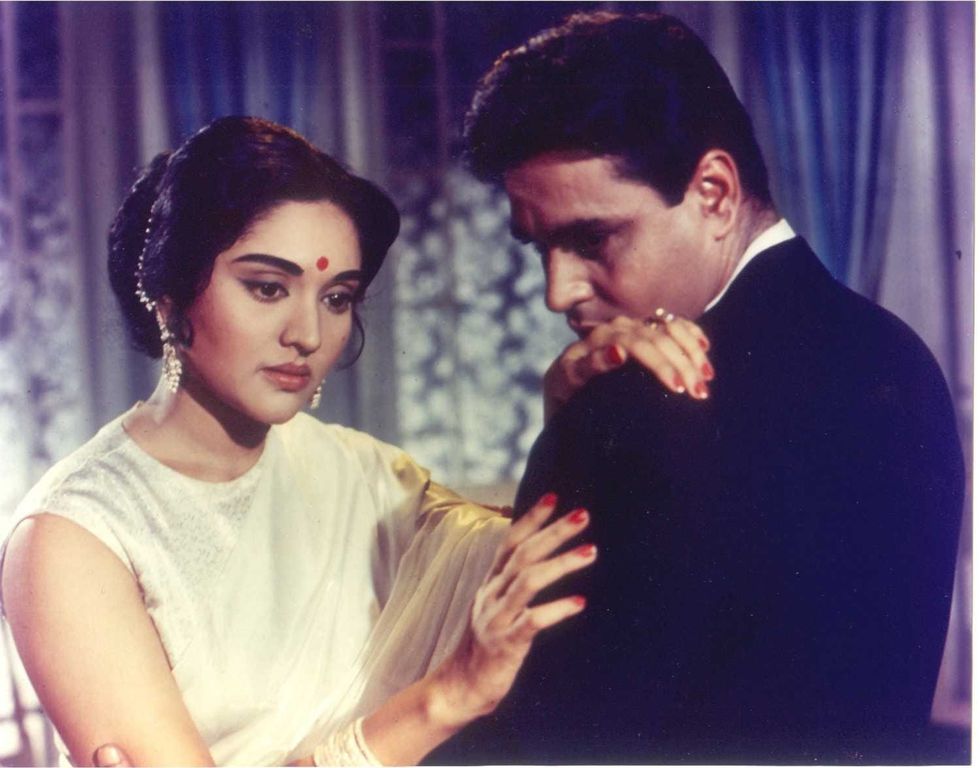
11 He starred opposite Raj Kapoor and Vyjayanthimala in iconic romance Sangam, which became the highest grosser of 1964, despite being longest Indian movie made at the time. His film Ayee Milan Ki Bela was the second most successful film of that year.
12 His musical drama Arzoo (1965) became the fourth highest grosser of that year. The following year his romantic drama Suraj was the second most successful film of 1966.
13 He received Filmfare best actor nominations for Dil Ek Mandir (1963), Ayee Milan Ki Bela (1964) and Arzoo (1965). He also received a best supporting actor nomination for Sangam (1964), but astonishingly didn’t win any acting awards. He did receive Indian civilian honour the Padma Shri Award in 1970.
14 The actor played his first double role in a commercial venture with Gora Aur Kala, which was the fifth highest grosser of 1972.
15 Kumar was signed up to play the lead role in Mughal-e-Azam (1960) director K Asif’s ambitious drama Sasta Khoon Mehanga Paani, but it remained incomplete after the filmmaker passed away.
16 His hit film Saajan Bina Suhagan (1978) was later remade in Tamil as Mangala Nayagi (1980) and in Malayalam as Oru Kochukatha Aarum Parayathe Kathain (1984).
17 The cinema legend launched his son Kumar Gaurav as a leading man with hit musical romance Love Story (1981). Kumar also produced his son’s movie Naam (1986), which resonated with Indian immigrants globally and became a star-making movie for Sanjay Dutt.
18 Kumar’s last acting roles were for TV serials Andaz and Vansh.
19 The actor’s son-in-law was Hollywood filmmaker Raju Patel, who had produced hit Tom Hanks comedy Bachelor Party (1984).
20 His last movie as a producer and lead star was Phool (1993). He starred alongside Madhuri Dixit, his son Kumar Gaurav and Mother India co-star Sunil Dutt.
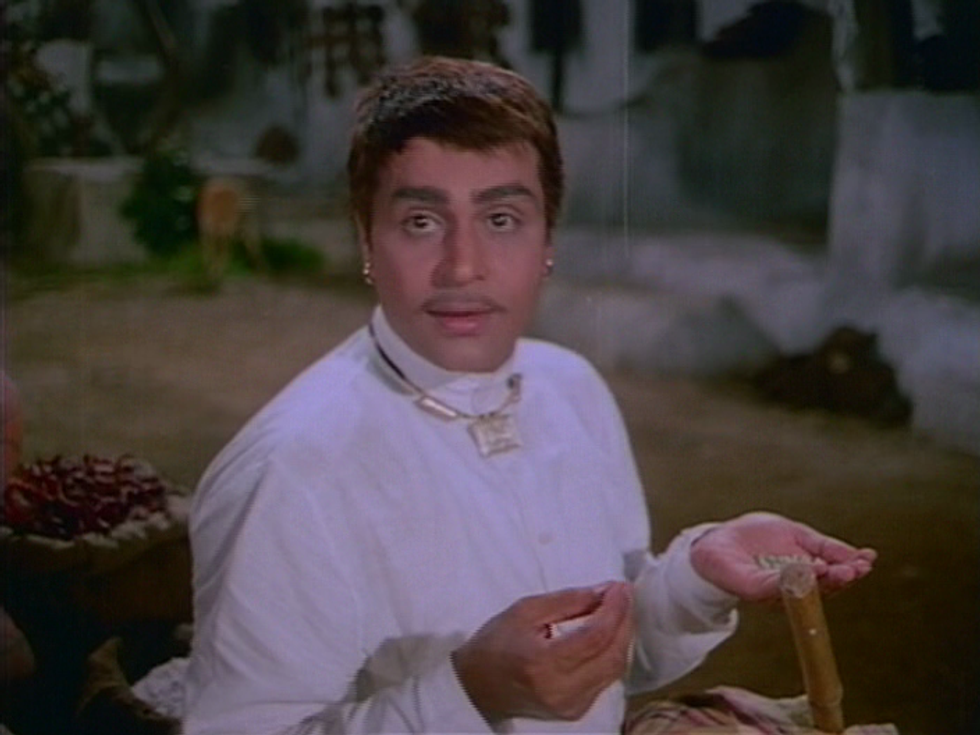
Great Rajendra Kumar performances
Kanoon (1960): The first commercial Bollywood hit without any musical numbers became a blockbuster largely thanks to great lead performances from an accomplished cast. Kumar’s portrayal of the lawyer trying to do the right thing was this path-breaking movie’s heartbeat.
Dil Ek Mandir (1963): Kumar received his first Filmfare best actor nomination for this challenging role. He brilliantly played a doctor treating a cancer patient (Raaj Kumar), needing a lifesaving operation, married to the woman (Meena Kumari) he loves. He puts across inner turmoil brilliantly with his perfectly pitched performance.
Mere Mehboob (1963): That year’s biggest hit saw him portray a poet, who falls in love with a veiled woman (Sadhana). His journey towards being united with her struck a chord with audiences, including a generation of women who fell in love with his sensitive character.
Sangam (1964): The legendary love triangle saw Kumar play a man torn between his best friend (Raj Kapoor) and the woman (Vyjayanthimala) he loves. He brought a deep sensitivity to an angst ridden role where his devotion is tested to the limit.
Arzoo (1965): Few could play a tragedy ridden hero quite like Kumar. With this Filmfare best actor award nominated performance he portrays a skiing champion, who decides to sacrifice his love after a life changing accident leaves him disabled.
Ganwaar (1970): This underrated classic featured a brilliant performance from Kumar. He plays an affluent man, who tries to make a positive difference by disguising himself as a poor villager and going on a journey of discovery that chang-es the lives of oppressed farmers.
